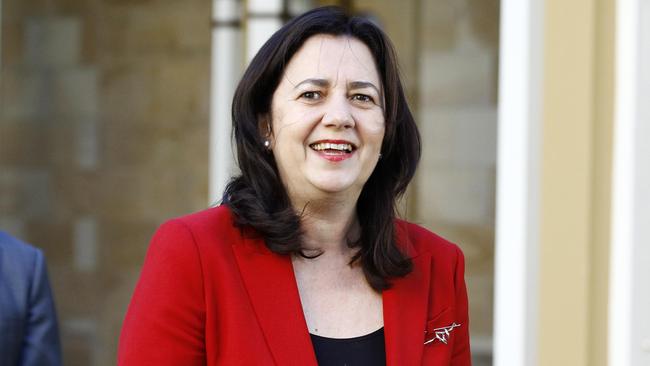
Its main manifestations are the border closures enforced by Queensland, Western Australia, South Australia and the Northern Territory.
These premiers and chief ministers strut the stage as populist strongmen and women — political leaders as police enforcers. They impose rules as they like, boast about their enforcement and justify everything in the cause of health protectionism for a grateful public. There is only one problem. As a policy, pandemic protectionism is most unlikely to succeed beyond the short term since the “indissoluble” nature of the Australian constitutional compact must be reasserted at some point and, short of a vaccine, total elimination of COVID-19 is a fantasy, as New Zealand has just shown.
The High Court of Australia will deliberate on this issue soon in the action brought by Clive Palmer, a case that raises the potential for a decisive intervention given that section 92 specifies the freedom of “intercourse” among the states. The question of what constitutes a proportional response in a pandemic will loom large. Not all border closures are the same, for example; closure of the NSW-Victorian border was an urgent necessity while closure of the Western Australia-South Australia border looks very different.
The impact of Victoria’s “second wave” ripples across the nation. Each state is desperate to avoid the plight of Victoria but the upshot has been border protection overkill. It will cause more damage the longer it lasts.
While Annastacia Palaszczuk and Mark McGowan would deplore much about Donald Trump, they follow in his footsteps — this is “Queensland First” and “Western Australia First” in a local version of Trumpian “America First” border politics.
Palaszczuk and McGowan say they will keep their restrictions in place until there is no community transmission in other states. Nobody can say when or if that will be achieved. It creates the possibility of border closures well into next year with the qualification, of course, the premiers in their guise as benevolent authoritarians will do whatever suits them.
Border closures were never recommended to the national cabinet by the Australian Health Protection Principal Committee but premiers have exercised their own authority and claim justification from their state health advisers. The risk is that the national cabinet is seriously diminished as a credible entity with disagreement on the core objectives of fighting the virus.
Led by Queensland and Western Australia the federation now has a de facto “elimination faction” with most states while the rival “suppression faction” constitutes the two main states, NSW and Victoria, and the Morrison government. What credibility does the national cabinet possess when leaders no longer agree on the basic strategic goal?
In less than six months Australia has lurched back towards an 1890s state sovereignty model. The problem for Scott Morrison is the unsolvable dilemma he faces — the national government’s fiscal stimulus in the form of JobKeeper and JobSeeker finances the pandemic protectionism of the states creating the economic conditions that make border closures viable.
Yet border closures undermine economies, ruin businesses, prevent travel, disrupt supply lines and bring misery to countless families. Nobody doubts that some border restrictions are essential, but these border closures have gone too far. Hard borders are being imposed; they are easy to police, with the victims kept to a minority. If the High Court gets to confront this issue it will render a national service if it can draw a line separating a justified from a disproportionate response to the pandemic.
The subjugation of the Morrison government to pandemic protectionism came with the Prime Minister’s recent letter to WA Premier McGowan, saying the commonwealth would withdraw from its intervention in the High Court borders case. In truth, it was being burnt too badly in the West, a vital state along with Queensland for Morrison’s re-election hopes.
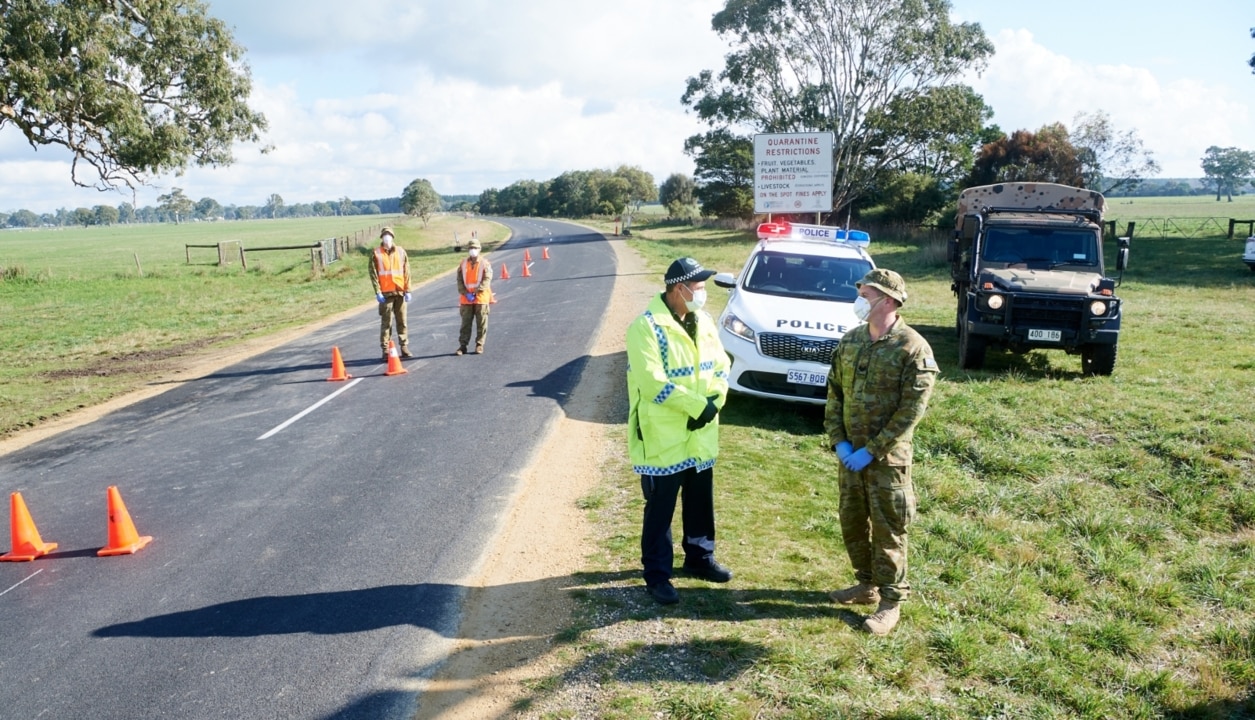
Opinion in the West is fanatical for the closures. Restrictions in the West, in practice, are gone to a large extent compared with NSW. Few people seem focused on the potential trap — as Morrison told McGowan based on advice from the Chief Medical Officer: “Border arrangements are no substitute for a strong public health response capability and maintenance of social distance principles.”
Morrison said: “If an outbreak were to occur in Western Australia, as has occurred in other states, it will be the strength of your state’s testing, tracing and outbreak containment capabilities that will determine your success or otherwise.” This is where Victoria collapsed.
As New Zealand has shown, you don’t eliminate this virus. Victoria became arrogant and has paid a devastating price. The reality, despite the Ruby Princess fiasco, is that NSW at present is the best performing state — its economy is still open and it is containing the outbreaks while the overall situation remains on knife edge.
The risk for Morrison is the spectre of a PM losing influence. He is trapped between a rock and a hard place. He cannot fight border closures in states where they are overwhelming popular, so he surrenders more control to the premiers. Yet he cannot leverage the commonwealth’s money power to bring the premiers into line because cutting fiscal support rebounds on Morrison, not the premiers.
Palaszczuk has the winning formula promising “to put Queenslanders’ health first” and safeguard them from contamination running amok in southern states. She can survive the economic destruction she is inflicting on the travel sector because that electoral constituency belongs to her opposition. At the October 31 election Palaszczuk will be the first premier to test Australia’s new political axiom — pandemic protectionism guarantees the re-election of any state government, no matter how inept or disreputable.
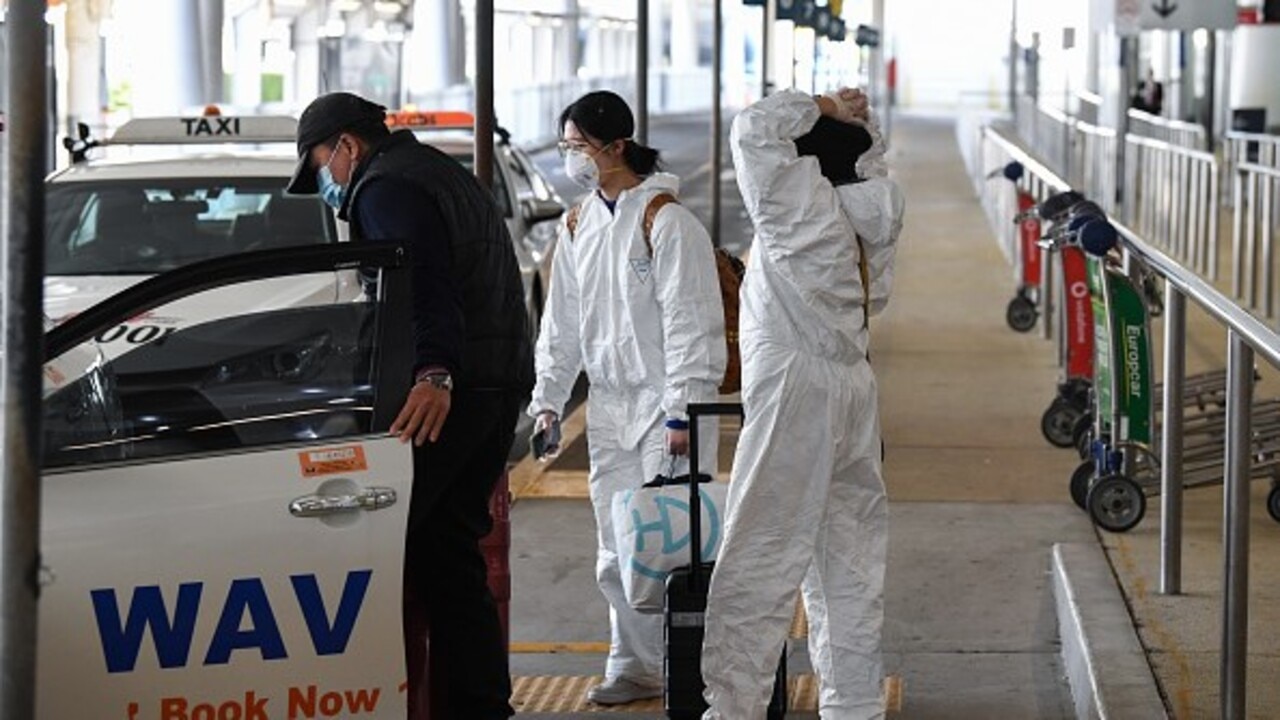
In the interim, the Northern Territory goes to the polls next weekend with Labor’s incumbent, Michael Gunner, foreshadowing closed borders for at least another 18 months and telling Territorians, only for their own good, to cancel plans to leave the NT at Christmas.
A new Fortress Australia is being erected, but this time along the lines of the old fiefdoms. In the Prime Minister’s letter to McGowan, he said the national government had a responsibility to “maintain our federation”. The lesson, however, is the states are for themselves. The mentality of “looking after me” is growing across the country. As it spreads across interests groups it will poison any hope for national interest economic reform.
Morrison tries to impose order as Mr Fixit, writing to all premiers seeking to remove anomalies in relation to people needing healthcare and farmers being disadvantaged. Fighting for the principle of open borders is a lost cause. He says the best model for border closures was that of NSW-Victoria that was negotiated with his consent. In his letter to McGowan the Prime Minister outlined four principles to govern closures — avoid arbitrary decisions, work with the commonwealth, consult with other affected states and seek nationally consistent rules. Good luck with that.
The virus has created a new political persona: the “will to power” premier. Victoria’s Daniel Andrews struggles but is far from finished. Premiers whose states have avoided any second wave are heroes in the near term. McGowan is master of the method — harsh border closures, revived economic activity, business support, pride in separation. His government pledges economic recovery “stronger than ever”.
In McGowan’s reply to Morrison, the Premier wanted the national cabinet to endorse the separate strategies of each state and, in effect, back his position in the High Court challenge.
No chance of that. Attorney-General Christian Porter, also a West Australian, had said previously his job was to serve the interests of the entire Australian people and he felt hard border closures “may not be a constitutionally sustainable position”.


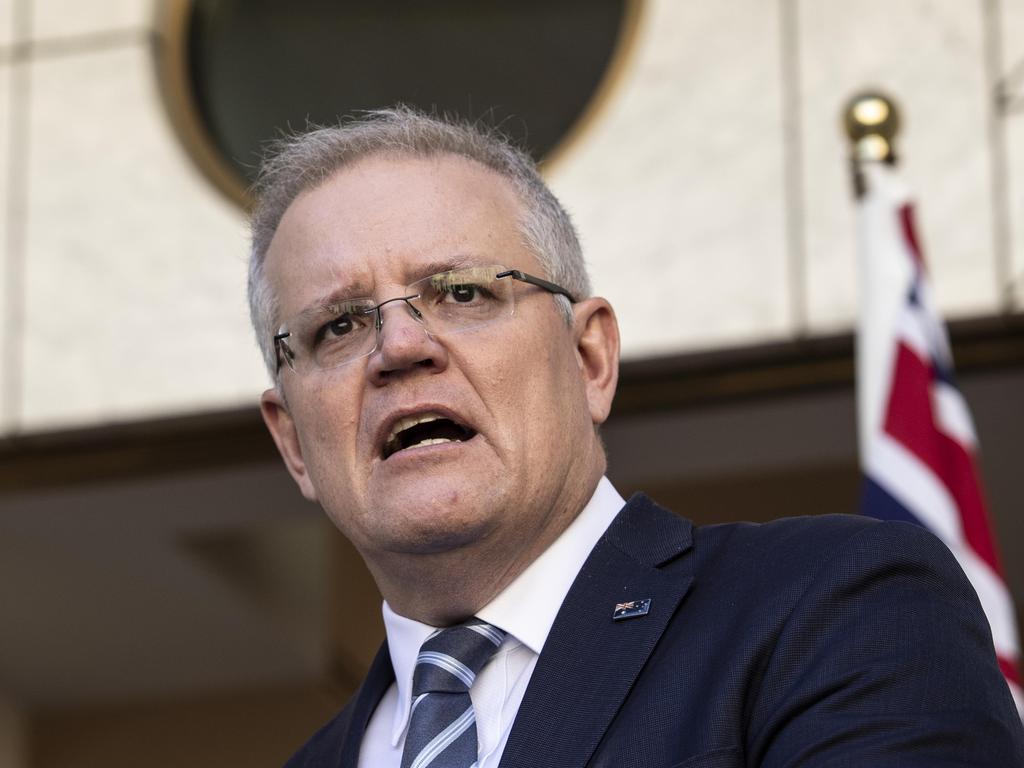
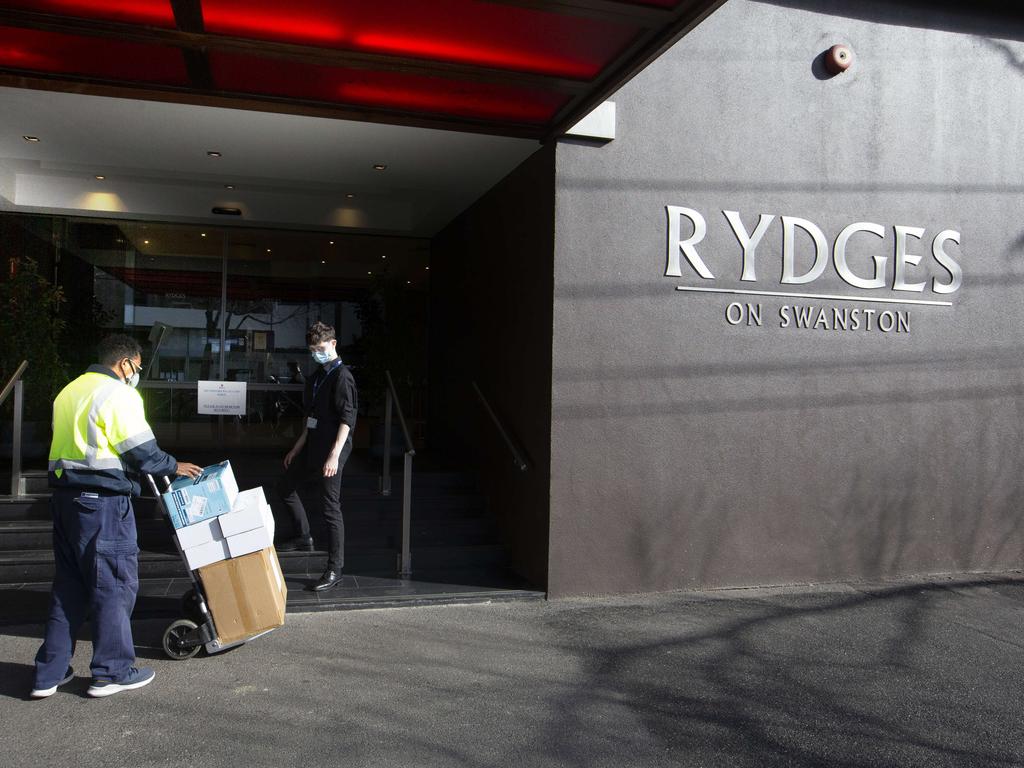
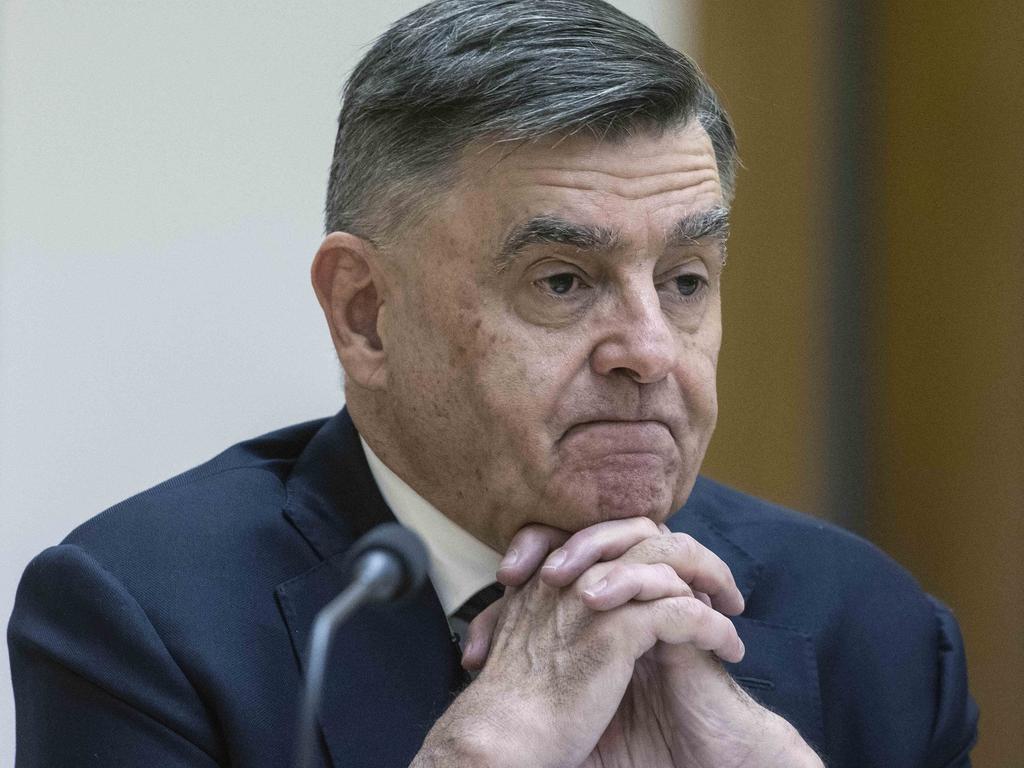
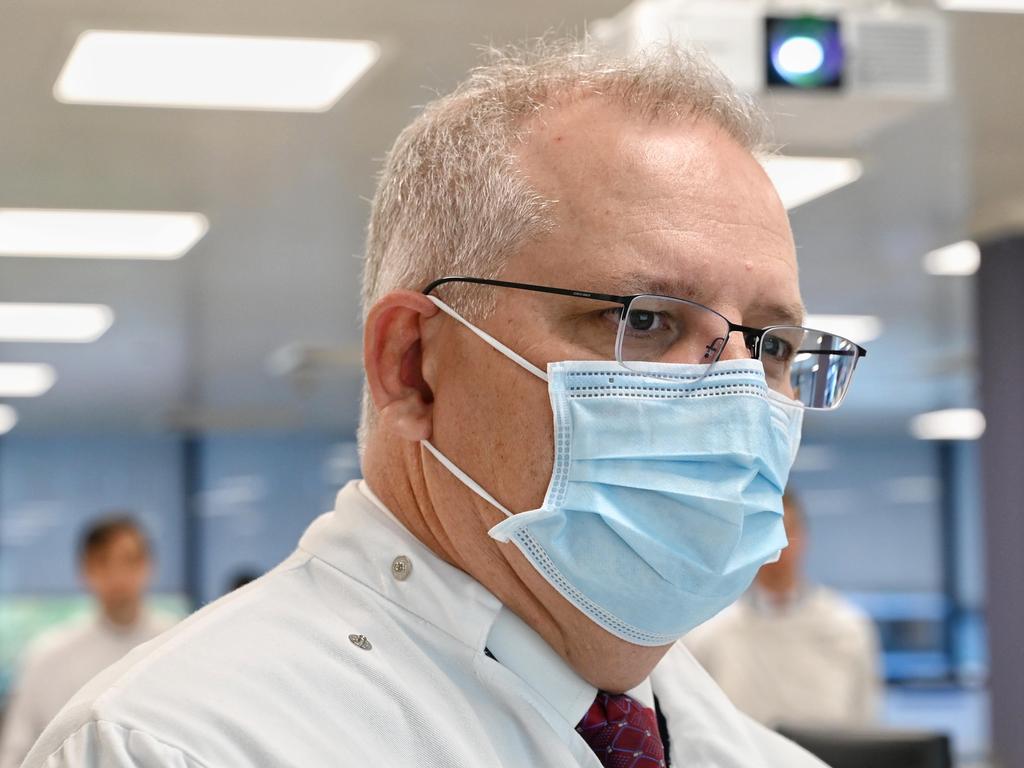


Pandemic protectionism is the new mantra of half the country. As an idea, it is popular and introspective, championed by premiers, justified by health officials, sanctioned by the imperative to eliminate the virus, and of course an assumed election winner.